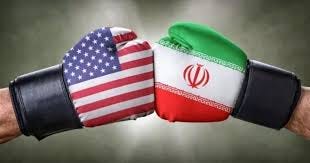PREAMBLE
Increasingly, it begins to dawn, and being acknowledged, that US security dominance over the Gulf is being marginalised, eclipsed and might be gone for good.
The recent U.S. advancing deal with Iran to swap five prisoners, free frozen oil funds besides issuing a waiver to allow banks to transfer $6 billion in Iranian assets without fear of U.S. sanctions are renewed initiatives to salvage a halted hegemonic hubris.
Tehran, on her part, had last month moved several Americans - reputedly five citizens - out of the country’s Evin Prison and placed them under house arrest in the first step of a significant agreement between the two longtime adversaries, at a time when the US is also "targeting Iran in 'unprecedented' ways" and resorting to “psychological warfare” to regain her Middle East foreign policy posture, while attempting to reclaim her geostrategic positioning in the Middle East and North Africa domain.
Professor Wang Jin, deputy director of Northwestern University's Institute of Middle East Studies (IMES), expounded further the underlying geopolitical and geoeconomics dynamics.
Excerpts from Wang’s interview with Kankan News (in Chinese), published August 5, 2023:
“Wang Jin, a Middle East expert, pointed out that hyping up the maritime security situation in the Persian Gulf and portraying Iran as the most dangerous threat in the region is a common US ruse.
“They intend to instill fear in Arab countries such as Saudi Arabia and the United Arab Emirates (UAE), making it easier for the US to intervene in Middle Eastern affairs. In this manner, the US can emphasize its security responsibilities in the Middle East region, as well as its moral obligation to protect its interests.
"Iran doesn’t have the will to seize and harass commercial ships passing through the Persian Gulf, but it has the capability to do so," Wang Jin observed.
“According to AP and AFP, the US Navy claimed on July 6 that Iran had seized a merchant ship in international waters in the Persian Gulf that day. The US Navy also claimed the day before that it had stopped Iranian forces from seizing two oil tankers off the coast of Oman. On the same day, Iran had justified its action, saying that its forces had attempted to intercept an oil tanker after it'd collided with an Iranian vessel the day before.
“According to Wang Jin, Iran's relevant maritime military or law enforcement actions have not fundamentally undermined or threatened normal navigation in the relevant sea areas [according to US Navy, since 2021, Iran has harassed, attacked or seized nearly 20 internationally flagged merchant vessels].
“Nonetheless, the US attempts to capitalize on the opportunity to build a case against it. This is exactly what the Iranian military has said, accusing the US of using reports about alleged ‘Iranian hijacking’ as a form of ‘psychological warfare’ to incite public support for "adventurist" behavior.
“In March, Saudi Arabia and Iran shook hands under Chinese mediation, propelling the Middle East's reconciliation into the fast lane...Wang Jin noted that the current international and regional situation has undergone significant changes in this regard.
“The US has been working diligently to instigate a "psychological crisis" in the Gulf Arab countries by hyping up a narrative that paints Iran as a threat. ‘What it really means is that they fear that the US security dominance over the Gulf region is gone for good.’”
source: Kankan News
Articles posted and mini-essays published - in the week that was - included:
3] FRIDAY FILES 15/09/2023
7] China's International Discourse Power
8] The 11th September 1973 Chile coup
9] Brazil involvement in the 9/11 Chile coup
Kindly circulate this journal or selective postings to your peers and diaspora communities.
Terima kasih.




